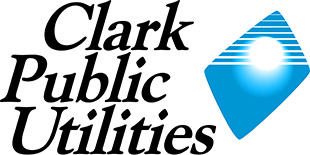Considering solar at your business?
Clark Public Utilities is here to assist with the project and provide important guidance on interconnecting renewable energy resources to the Clark Public Utilities electric grid.
Take these three steps before signing a contract!
- Determine if solar makes sense for your business using the Google Project Sunroof website that will analyze the annual hours of usable sunlight your business’s roof will receive during an average year. Large trees directly south of your business will negatively impact solar generation.
- Ensure you are not over paying for a solar system by collecting three bids from three different solar installers.
- Call the solar team at Clark Public Utilities (360) 992-3244 to help answer any questions you may have.
Contact Us

Questions about our solar energy programs? Contact our Energy Resources team and we can help.
Save on Your Electric Bill with Solar
Harnessing the power of the sun continues to gain interest in Clark County. For customers planning to install a solar energy system at their business, we can help with connection to our electric system and answer your questions along the way.
Renewable energy systems consist of a generator (rooftop or ground-mounted solar panels), an inverter to convert the output into usable energy, and sometimes a battery storage component.
Solar systems are the most common renewable energy technology installed by individual customers in Clark County.
Net Metering
Clark Public Utilities offers the Net Metering program to customers who install solar, up to 100 kilowatts (kW) in nameplate system capacity (AC nameplate). Net metering provides customers with the retail rate value for the solar electricity produced by their system, whether that electricity is consumed at your business or delivered back to the Clark Public Utilities electric system.
Avoided Cost Rate
Customers that install solar systems larger than 100kW will receive the Net Metering benefit for the first 100kW of system capacity and be compensated using the Clark Public Utilities Avoided Cost Rate for any system capacity greater than 100kW. Customers who install solar systems greater than 100kW will be required to separately meter the first 100kW of capacity of the system.
The portion of the system greater than 100kW will be connected directly to the utility electric system and feed the solar electricity directly into the electric system. Customers will be compensated annually for the solar electricity generated using the Avoided Cost Rate.
The Avoided Cost Rate fluctuates month-to-month and is based on the average wholesale electricity costs in WA State. Please call our team at (360)992-3244 to learn more about our Avoided Cost Rate.
Net Billing
Clark Public Utilities offers the Net Billing program to customers who install solar, between 101 kilowatts (kW) and 1,000 kilowatts (kW) in nameplate system capacity (AC nameplate). Net Billing provides customers with the retail rate value for the solar electricity produced by their system that is consumed at their business and the solar electricity delivered back to the Clark Public Utilities electric system is compensated using the Avoided Cost Rate.
Please review the Net Billing Checklist and complete the Net Billing Customer Agreement and Interconnection Application to apply for the Net Billing program. All systems that exceed 199 kilowatts (kW) in nameplate capacity (AC nameplate) must receive an approved Bonneville Power Administration Small Generator Interconnection Agreement. The Clark Public Utilities Generator Interconnection Requirements are also available for review and reference.
Additional Important Considerations
Customers installing solar systems at their business may be eligible for a federal tax credit of 30% of the system cost. Please see the link below for additional information. Customers who install solar systems that exceed 199 kilowatts (kW) will be required to complete the Bonneville Power Administration’s (BPA) Small Generator Interconnection procedure.

Find a Solar Contractor
Current Solar Incentives
Incentives and benefits available now for installing a solar power system include:

